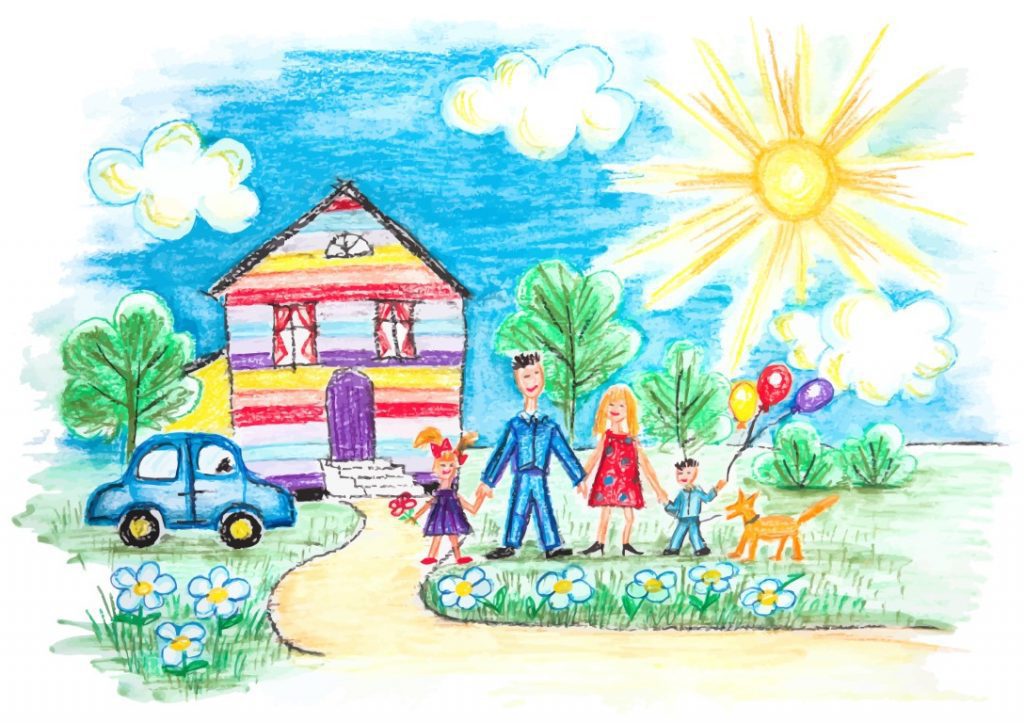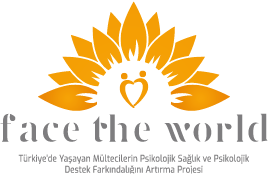Being able to communicate well strengthens our bond with our children. Being able to talk to each other is also important for good communication. This is because, just like everyone else, children also need to talk to somebody just like everyone else. It is important to look at their faces, listen to what they are saying without interrupting, and allow them to ask questions. Children may not be as skilled at expressing themselves as we are, and we need to give them time to say what they want to say. In the meantime, it is essential to use our gestures and facial expressions to show that we are listening to and trying to understand the child and to convey the message of “I am still listening to you” by responding with “Yes, I see” or “Uh-huh” now and then. It would be best if you answered children’s questions while talking and made explanations to help them comprehend what they do not understand. All this effort will reinforce the child’s sense of being someone to be cared for, trusted, and loved. It will also increase the child’s trust in their parents.
We should talk to our children, try to answer their questions within reason, and spend time with them, even if what they say sometimes does not make sense.
Trust requires mutual respect
As aforementioned, love, respect, and trust are closely linked together. All of these feelings should be reciprocal. If we want them to respect us, we must first show respect to our child. We can show that we respect our children through our words and actions. The respect we offer in our communication with our children will help them respect and trust us. There is a variety of ways to do this.
Our children grow up watching and seeing us. If we want them to learn the right and preferred behaviors, we must set an example of such behavior in the first place. The child, who sees the adults around them swearing, hitting, and yelling at each other, will learn to swear, hit and yell. If we want our children not to engage in such behavior and be respectful, we first need to review the behavior we display around them and not behave in a way we don’t want our children to behave. Our behaviors are also a way of showing that we respect each other.
It isn’t easy to build love and trust in relationships without respect.

Direct communication is essential for the feelings of love and trust.
We need to tell our children what is right and important. In doing so, it will be helpful to talk to the child directly and in a manner that the child can understand. It is also important to explain why we want them to do this and to answer any of their questions, if any, so that they don’t get confused. For example, instead of saying, “Do your maths homework, look at your sister; she has already finished,” it is important to ask the question as, “Have you finished your math homework? Is there anything I can help with?”. You should explain to the children why they should do their homework and that it is their own duty to do their homework.
Comparing is dangerous
Comparing our children with one another, saying, “Look, your brother is very successful, and you are not,” will not help them succeed. When you compare them to others, they may start to compare themselves to others after a while. Rather than trying to find and develop their good and decent skills, they may become jealous of and begin to hate others. Being constantly compared to others will not be to the benefit but instead to the child’s detriment since it will instill the idea that they are inadequate, that they will not be loved if they cannot always do their best, and that they are unwanted as they are. This will also prevent our child from loving and trusting us.
There is no such thing as perfect parenting!
We may make mistakes, and we can learn a lot from them. This only shows that we are human and can be mistaken. Children learn by making mistakes in many subjects. We need to let children learn about life by giving them a chance to try and fail.
The ones making mistakes can also be us. It is impossible to know everything, make no mistakes, and always make the right decision. Accepting our mistakes when we make them but also correcting them and trying to learn instead of pretending to know about things we do not know will help our children take us as an example and, in fact, trust us more.


The psychology of home environment is important for the child
If there are people at home suffering from mental problems, this will inevitably reflect on the children. They will find it challenging to trust parents who scold everyone at the house, start yelling out of nowhere, seem very sad or cry over trivial things for no reason. The surest way to remedy this situation is to take steps to improve our mental well-being.
We cannot expect our children to feel great before we feel better or get better. Similarly, restoring our mental health will support the mental health of our children. ASAM has experts you can consult for professional support for your mental state. If we are not feeling well mentally, the best thing we can do for our child is to get help from an expert for our mental health.
“Birds fly, fish swim, children play” Garry Landreth
Children can play in an environment of love, respect and trust. Playing is a child’s way of learning and communication. Only the children who can feel safe can play games. Playing also helps children express themselves and communicate with us.


The primary condition for playing games is not expensive toys or reserved playgrounds. Paper or pieces of fabric can also help make toys. To be able to play, the child must feel safe. The child who feels safe and loved can produce various games. It is a known fact that children who can feel safe, play games, and express themselves in such a manner have better communication with their friends in the future and more successful school life.
Trust, Love, and Respect First
In summary, what is more important to children than having nice furniture in the house or wearing expensive clothes and doing expensive fun things outside is having parents they can talk to and trust.
For our children, being at home and by our side means being safe and together. The most crucial element of a safe and healthy future we can provide for our children is to remember how significant our presence and love are for our children as their parents and to start making efforts to rebuild the feeling of trust at home.
If you want to benefit from our psychological health services, you can apply to the nearest ASAM office for further information. Interviews are held free of charge and in accordance with the principle of confidentiality.



